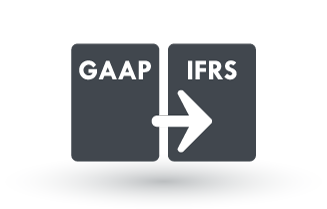A Bond Grant is a multi level bonds combination to ensure that project owners and stakeholders are protected during the CIP construction process.
Understanding Bond Grant Agreement
Bond Grant agreements are pledged from general contractors for construction projects to receive a grant to pay contractors expenses. It is obligation pledge that guarantee contract fulfillment. The Bond Grant holds a Bid, Performance, and Payment with Surety. They often go hand-in-hand, but serve different purposes.
What is a Bid Bond?
Bid bonds are a form of insurance that protects developers from loss. They benefit project developers in two key ways:
- Contractor Insurance: With bid bonds in place, developers know the surety provider backs the contractor and will provide the necessary performance bond if the contract is awarded.
- Price Security: Developers receive financial security if the selected contractor backs out. In this situation, the developer can file a claim to recover the difference between the lowest and second-lowest bids.
How To Withdraw Your Construction Bid Without Losing Your Bond
Contractors can only withdraw a bid without losing the bid security (the bond) if the withdrawal happens before the developer opens the bid. Once a contract is awarded, bid withdrawal will result in the automatic loss of the bond.
What’s a performance bond?
A performance bond is a guarantee that a contractor will complete a project according to all contract terms.
What’s a payment bond?
A payment bond ensures that a primary contractor will pay subcontractors and material suppliers in full and on time.
How Do Payment and Performance Bonds Work Together?
Together, payment and performance bonds ensure large construction projects are completed appropriately and all parties involved are properly compensated. Both bond types create a legal agreement between three parties:
- Principal: The contractor filing the bond
- Surety: The surety company issuing the bond
- Obligee: Project owner/government agency requiring the bond
When Do You Need a Payment Bond vs Performance Bond?
Payment and performance bonds are almost always issued together. Most large public construction projects require contractors to get both a performance and payment bond. However, some contracts for private or smaller public projects will only mandate a performance bond.
While typically purchased together, you can buy payment and performance bonds at separate times. A payment bond can be purchased while negotiating a contract, and performance bonds are necessary before breaking ground.
Miller Act Payment and Performance Bonds for Public Construction Projects
The Federal Miller Act requires contractors to get performance and payment bonds for all publicly-owned construction projects over $100,000. Certain states and municipalities also require payment and performance bonds on smaller projects. These bonds protect investor and community grantor dollars from being lost in failed public construction projects.
How to Get a Performance or Payment Bond
Choosing Treasury Bank Organization is the quickest and easiest way to get a payment or performance bond. Just follow these four steps:
- Step 1: Apply for your bond online
- Step 2: Provide any additional information as needed
- Step 3: Pay for your invoice online or over the phone
- Step 4: File the bond form with a program administrator.
We’re here to help streamline your bond process.
How Fast Can You Get Your Bond Grant?
You can get Bond Grant under $750,000 in as little as 24 hours. For bonds over $750,000, the approval process can take anywhere from 3 to 10 days. The timeframe for application approval depends on how quickly you can provide supporting documents and information for the surety to review.
Apply online today and an Administrator will contact you within one business day or less!
How Much Do Payment vs Performance Bonds Cost?
Performance and payment bond premium rates typically cost 3% of the total project value. When issued together, you’ll only need to pay one premium for both bonds. For example, a qualified contractor would pay $3,000 for payment and performance bond coverage on a $100,000 construction project. Use our Contractor Bond Grant Cost Calculator to get a price estimate today.
What is a Surety Bond?
A surety bond is a financial guarantee that contractual obligations will be met. It is a three-party agreement between the principal (you), the surety (us) and the obligee (the entity requiring the bond).
What Does a Surety Bond Cover?
Surety bonds protect grantor, Investors, entities, and businesses from loss by holding bonded parties financially liable for their legal or professional obligations. If the bondholder breaches the contract terms, harmed parties can recover their loss by filing a claim on the bond.
For example, surety bond obligations can range from completing a contracted project to following industry licensing rules to properly managing estate assets.
Qualifying for a Bond Grants
Bond Grant require applicants to go through the procurement process. To complete your application, you may need to provide some additional information:
- Have you ever been bonded before?
- How long has your company existed?
- Project size and contract terms
- Bond coverage amount
- Procurement credit score
- Financial credentials
- Work history
A good procurement history and multiple years of experience are typically required to qualify for standard Bond Grant. If you’re a newer contractor or have low credit, call to discuss your options with a surety expert.




